A partner you can trust
How to Choose the Right Armoured Electrical Cable for Your Specific Needs
In today's rapidly evolving electrical infrastructure landscape, selecting the appropriate armoured electrical cable is crucial for ensuring safety and efficiency in various applications. According to a recent industry report by Technavio, the global market for armoured cables is projected to grow significantly, driven by increasing demand for reliable power supply solutions across sectors such as construction, manufacturing, and energy. The report highlights that the durability and robustness of armoured electrical cables make them ideal for use in harsh environments, where protection against physical damage and environmental factors is essential. Furthermore, with advancements in technology and materials, choosing the right armoured electrical cable can enhance the operational longevity of electrical installations, thereby reducing maintenance costs. This article will guide you through the vital considerations and specifications needed to make an informed decision tailored to your specific needs.

Factors to Consider When Selecting Armoured Electrical Cables
When selecting armoured electrical cables, several critical factors must be considered to ensure they meet your specific needs. One primary consideration is the environment in which the cables will be installed. For example, cables operating in outdoor or underground applications should have robust armouring to protect against moisture, chemicals, and physical impact. According to the International Electrotechnical Commission (IEC), the failure rate of cables can increase significantly if they are not appropriately rated for their installation environment, highlighting the importance of selecting cables designed for the specific conditions they will face.
Another vital factor is the type and size of conductor required for your particular application. The National Electrical Manufacturers Association (NEMA) emphasizes using cables with the proper conductor gauge to ensure optimal performance and safety. Undersized conductors can lead to overheating and reduced efficiency. Additionally, considering electrical load requirements is crucial; data from the Electrical Safety Foundation International indicates that improper sizing of electrical cables can lead to a 30% increase in failure rates. Therefore, understanding your operational demands and adhering to industry standards are essential for choosing the right armoured electrical cable.
Understanding Different Types of Armoured Electrical Cables
When selecting the right armoured electrical cable, it's essential to understand the various types available, each designed for specific applications and environments. The most common types include Steel Wire Armoured (SWA), Aluminium Wire Armoured (AWA), and Polymeric Armoured cables. SWA cables are robust and suitable for outdoor installations due to their excellent mechanical protection, making them ideal for industrial settings or underground installations. AWA cables offer a lighter alternative with comparable resistance to environmental stresses, making them suitable for areas where weight is a concern.
Additionally, there's a distinction between the types of armouring based on the level of protection required. For example, cables that need to withstand high impact or exposure to harsh conditions might benefit from enhanced armouring like double armour, which provides added strength and durability. Understanding the specific requirements of your installation, such as temperature range, flexibility, and external hazards, is crucial in making an informed choice. Knowing the features and benefits of each type ensures that the chosen armoured cable meets both safety and performance standards for your project.
How to Choose the Right Armoured Electrical Cable for Your Specific Needs
| Cable Type | Application | Core Material | Voltage Rating | Armouring Type |
|---|---|---|---|---|
| Steel Wire Armoured (SWA) | Underground installations | Copper | 0.6/1kV | Steel Wire |
| Aluminium Armoured Cable | Above ground and outdoor | Aluminium | 0.6/1kV | Aluminium Wire |
| LSF Armoured Cable | Commercial buildings | Copper | 300/500V | Armoured |
| PVC Armoured Cable | Residential wiring | Copper | 0.6/1kV | PVC |
Assessing Environmental Conditions for Cable Suitability
When selecting the right armoured electrical cable, assessing environmental conditions is crucial to ensure suitability and longevity. Various environmental factors can significantly impact cable performance. For instance, temperature fluctuations can affect insulation material, which may lead to premature failure.
According to the National Electrical Manufacturers Association (NEMA), cables exposed to extreme heat (over 90°C) can suffer a degradation rate five times higher than those operating at standard temperatures. Thus, understanding the maximum and minimum operational temperatures is vital.
Moreover, environmental exposure to moisture, chemicals, or physical stress calls for specific cable types. The International Electrotechnical Commission (IEC) specifies that cables used in outdoor applications must have robust water-resistant and UV-protective coatings to prevent degradation. A report by the Cable Manufacturers Association indicates that nearly 30% of cable failures are attributed to inadequate protection against such environmental challenges. Additionally, when deploying cables in industrial settings, considering factors like mechanical impact resistance is essential to avoid damage during operation. Therefore, a thorough assessment of these conditions allows for the selection of armoured cables that not only perform optimally but also offer extended service life.
Evaluating Voltage and Current Requirements for Your Application
When choosing an armoured electrical cable, understanding your voltage and current requirements is crucial. According to the National Electrical Manufacturers Association (NEMA), slightly over 30% of electrical failures in industrial applications result from improper cable selection. To ensure optimal performance, it's essential to assess both the voltage and amperage needed for your specific application. For example, a typical commercial setup may require cables that can handle voltages up to 600 volts, while industrial applications often necessitate cables rated for 1,000 volts or more.
**Tips:** Always consult relevant standards and regulations, such as the Institute of Electrical and Electronics Engineers (IEEE) guidelines, to ensure compliance with local codes. Additionally, consider the ambient temperature and installation conditions, as these factors can significantly influence a cable's current-carrying capacity. For instance, high temperatures can reduce the permissible current, while harsh environmental conditions may require cables with enhanced protective features.
Understanding the type of load—be it resistive, inductive, or capacitive—is also vital in determining the appropriate cable. A report from the International Electrotechnical Commission (IEC) indicates that selecting the wrong type of cable can lead to overheating and pose safety risks. By carefully evaluating your current and voltage needs, you can select an armoured electrical cable that not only meets industry standards but also ensures reliability and longevity in your application.

Budgeting and Cost-Effectiveness of Armoured Electrical Cables
When selecting armoured electrical cables, budgeting and cost-effectiveness are crucial factors that significantly impact the overall project expenses. According to a report by the International Electrotechnical Commission, the initial cost of armoured cables can be up to 30% higher than that of non-armoured counterparts. However, their long-term benefits can outweigh these upfront costs. The durability and protection offered by armoured cables typically result in reduced maintenance expenses and downtime. In industrial settings, where cable damage can lead to substantial operational losses, investing in higher quality armoured cables can be seen as a cost-saving measure in the long run.

Moreover, the market for armoured electrical cables is expected to grow steadily, with a forecasted increase of 5.3% annually from 2023 to 2030, according to a study by Allied Market Research. This growth is largely driven by the rising demand in construction and utility sectors, where reliable and robust electrical supply is essential. By carefully considering the cost-effectiveness of armoured cables, organizations can not only adhere to budget constraints but also enhance safety and efficiency in their electrical installations. Adopting a strategic approach to cable selection can lead to significant savings and improved project outcomes.
Related Posts
-

10 Essential Tips for Sourcing Electric Cables Effectively in 2023
-

The Ultimate Guide to Choosing the Right Electric Cable for Your Projects
-

The Ultimate Guide to Choosing the Right Outdoor Electrical Cable for Your Needs
-

Comprehensive Guide to Selecting the Best Flexible Cable Conduit for Your Project
-

8 Essential Tips for Choosing the Best Outdoor Electrical Cable for Your Next Project
-
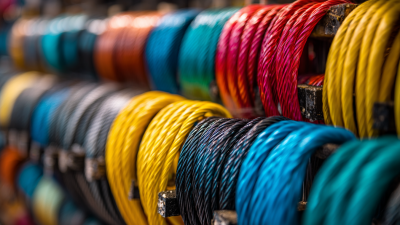
How to Choose the Right Electric Cable for Your Global Procurement Needs
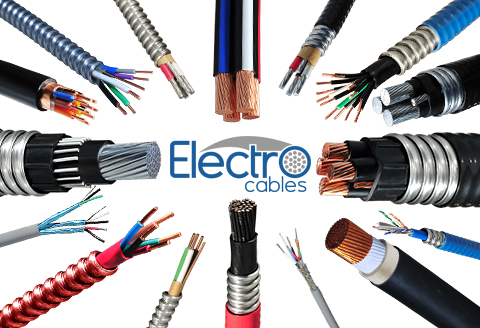
Products
Products
LEARN MORE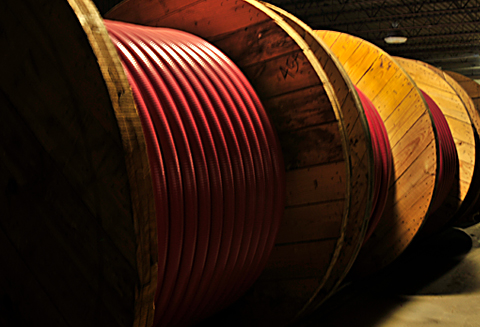
Current Inventory
Current Inventory
LEARN MORE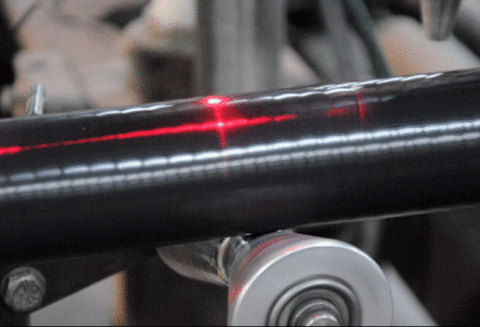
Custom Solutions
Custom Solutions
WE CAN HELPLighting Power & Control-Signal Cable
This content is restricted to site members. If you are an existing user, please log in. New users may register … LEARN MORE “Lighting Power & Control-Signal Cable”
LOOKING
FOR HELP?
We are here to help. You can contact us or create an account online to have access to special products, technical specifications and our new online quote tool.
ELECTRO CABLES
9 Riverside Drive
P.O. Box 276
Trenton, Ontario
CANADA K8V 5R5
N.A. Toll Free: 888-ELECTRO
(1-888-353-2876)
World: 613-394-4896
Fax: 613-394-4101
Email: sale@machinecables.com
We manufacture cables that are certified by the Canadian Standards Association (CSA), listed by Underwriters Laboratories and/or listed by Intertek (ETL).
Our quality management system is registered to ISO 9001: 2015. Our team is dedicated to consistently providing quality service and products to our customers.
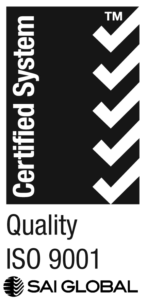
© 2025 ELECTRO CABLES • SITE BY SNAP 360•
